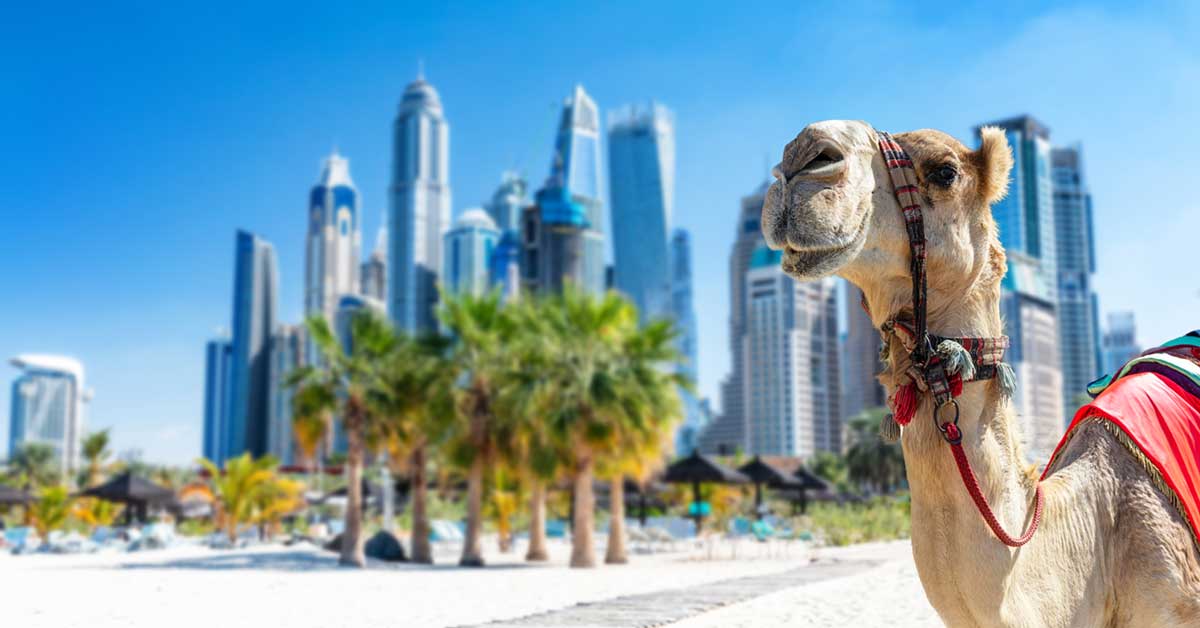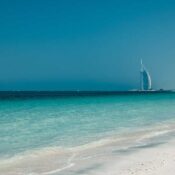Eco-Friendly Travel in the UAE: Sustainable Tourism Tips

Eco-Friendly Travel in the UAE: Sustainable Tourism Tips
The UAE, known for its modernity and rapid development, is also emerging as a leader in eco-friendly tourism. As travelers become more conscious of their impact, sustainable tourism in the UAE is gaining momentum. By adopting eco-friendly travel practices, visitors can enjoy the UAE’s beauty while helping preserve its unique landscapes, biodiversity, and cultural heritage for future generations.
Sustainable tourism is crucial for protecting the UAE’s environment and rich heritage. Every action taken to reduce environmental impact makes a difference for eco-conscious travelers, whether conserving resources or supporting ethical businesses. This guide offers valuable insights into the UAE’s efforts toward sustainable tourism and practical tips on enjoying an eco-friendly travel experience.
1. Choose Eco-Friendly Accommodations
Staying in eco-conscious hotels is a significant step toward sustainable travel. Many UAE hotels are adopting green practices, from using renewable energy to minimizing waste.
- Examples:
- Al Maha Desert Resort (Dubai): Known for its conservation efforts and solar power use.
- Jumeirah at Saadiyat Island Resort (Abu Dhabi): Committed to sustainability with its zero-plastic policy and water conservation.
- Tips: Consider accommodations with certifications like Green Key or LEED and eco-friendly features such as energy-efficient lighting, recycling programs, and water conservation efforts.
Why Choose It: These accommodations provide comfort while supporting environmental conservation.
2. Support Local and Ethical Tours
Choose tour operators that practice ethical and sustainable tourism by respecting the environment and supporting local communities.
- Examples of Responsible Tour Operators:
- Arabian Adventures: Focuses on cultural preservation and hires local guides.
- Platinum Heritage: Offers eco-friendly desert safaris using sustainable practices.
- Tips: Research operators that prioritize sustainability, employ local guides and support cultural heritage initiatives.
Why Choose It: Ethical tours support the economy and foster genuine cultural exchanges.
3. Conserve Water and Energy
Given the arid climate in the UAE, conserving water is essential. Small steps like reusing towels and turning off lights help reduce one’s environmental footprint.
- Tips: Use water wisely, especially in hotels, avoid long showers, and choose accommodations that actively reduce water waste.
- Energy Conservation: When leaving your room, turn off air conditioning and lights, and avoid unnecessary energy use.
Why Choose It: Conserving resources aligns with sustainable tourism goals and helps protect scarce resources.
4. Use Public Transport or Shared Rides
Opting for public transport or shared rides helps reduce emissions, especially in city areas like Dubai and Abu Dhabi.
- Options in the UAE:
- Dubai Metro: Efficient, affordable, and covers significant city spots.
- Buses and Trams: Reliable and easy to use for city travel.
- Tips: Download apps like RTA (Dubai) or plan your routes to maximize the use of public transportation.
Why Choose It: Public transport helps reduce your carbon footprint and offers a new way to experience the city.
5. Participate in Wildlife Conservation Activities
The UAE has several protected areas promoting conservation, including wildlife sanctuaries and mangrove forests.
- Recommended Activities:
- Al Wathba Wetland Reserve: A sanctuary for migratory birds, ideal for eco-tourists.
- Mangrove tours in Abu Dhabi: Experience the UAE’s mangrove forests and learn about their role in the ecosystem.
- Tips: Book tours with conservation-focused organizations and respect wildlife by following guidelines.
Why Choose It: Engaging in conservation activities enriches your experience and contributes to protecting the UAE’s biodiversity.
6. Choose Sustainable Dining Options
Many restaurants in the UAE are embracing sustainable practices, from sourcing local ingredients to reducing waste.
- Examples of Sustainable Restaurants:
- LOWE Dubai: A zero-waste restaurant that uses seasonal ingredients.
- Farmhouse at The Ritz-Carlton Ras Al Khaimah: Focuses on locally sourced ingredients.
- Tips: Support restaurants that prioritize organic, local, or seasonal produce, and consider plant-based options to reduce your environmental impact.
Why Choose It: Sustainable dining supports local agriculture and minimizes environmental harm.
7. Respect Nature and Heritage Sites
When visiting the UAE’s deserts, beaches, and cultural sites, follow leave-no-trace principles to preserve these areas for future visitors.
- Tips: Avoid littering, stay on designated paths, and avoid disturbing wildlife.
- Responsible Actions: Refrain from touching coral reefs, feeding animals, or collecting natural souvenirs.
Why Choose It: Respecting nature helps preserve the UAE’s landscapes and wildlife.
8. Shop Sustainably
Support local artisans and eco-friendly products when shopping, contributing to the local economy and promoting sustainable practices.
- Where to Shop:
- Ripe Market (Dubai): Offers locally made, organic products.
- The Sustainable City Market (Dubai): A market focused on eco-friendly goods.
- Tips: Choose souvenirs that are handmade, locally produced, and made from sustainable materials.
Why Choose It: Shopping sustainably reduces waste, supports local artisans, and provides unique and meaningful souvenirs.
Conclusion
Eco-friendly travel in the UAE allows you to experience the country’s stunning landscapes, cultural heritage, and modern luxuries while contributing to environmental conservation. From choosing green accommodations to participating in wildlife conservation, every small step can make a positive impact. Ready to explore the UAE sustainably? Consider booking your trip with our client’s eco-friendly travel services to enjoy a responsible, enriching journey in the UAE.



